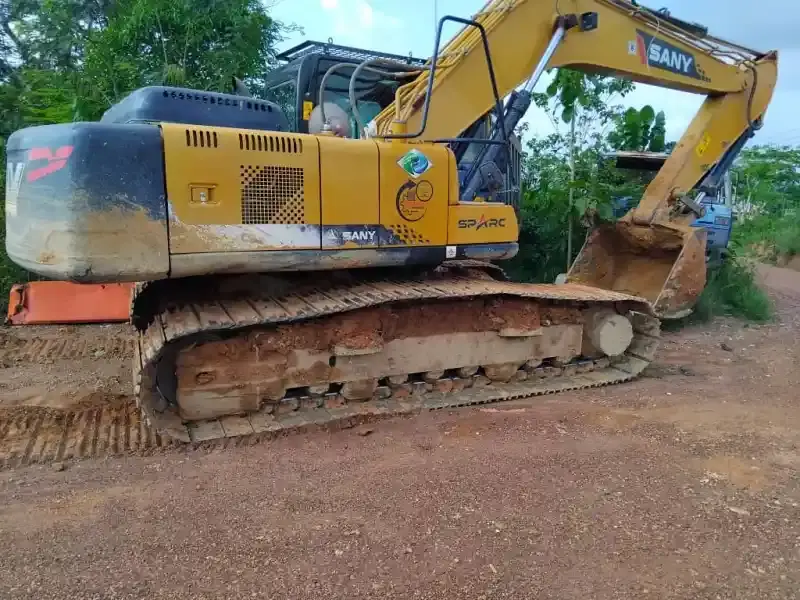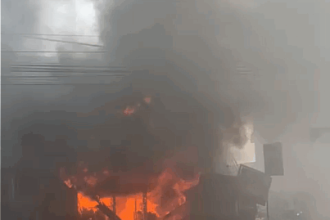In a significant legal development on April 2, 2025, the Enchi District Court reversed its previous decision to release two Liugong excavators and other mining equipment seized from illegal miners operating in the Boin Forest Reserve.
The ruling was delivered by Judge Lawrence Buenor Buer, who acknowledged that the court had erred in its March 28 decision and did not have the jurisdiction to issue such an order.
Judge Buer’s decision followed careful consideration of the legal framework surrounding the case and the authority of the District Court.
He declared the earlier ruling, which had directed the release of the seized equipment, to be null and void.
According to the judge, the District Court does not have the legal standing to handle matters related to illegal mining, a position supported by previous case law.
The machinery, which includes two Liugong excavators, had been seized by authorities during operations to clamp down on illegal mining activities in the Boin Forest, a protected reserve.
The illegal mining operations have been a persistent problem in the region, leading to environmental degradation and loss of valuable natural resources.
The Forestry Commission, in collaboration with the Enchi Police Command, had earlier confiscated the equipment in a bid to curb these activities.
After declaring the previous ruling invalid, Judge Buer ordered the Enchi Police and the Forestry Commission to locate and secure the machinery.
The equipment is to remain in the custody of the Forestry Commission until the matter is taken up by a higher court with the proper jurisdiction to address illegal mining cases.
The decision to revoke the earlier ruling was made in light of several legal precedents, including rulings from the Supreme Court in cases such as Moshie vs. Begyina (1963) and Attoh Quarshie vs. Okpoti (1973).
These precedents reinforce the principle that courts can correct their own mistakes to maintain the integrity of the judicial process.
The case involves six individuals who are accused of engaging in illegal mining activities. While four of the accused are still absent, two individuals remain at large.
The court’s ruling underscores the importance of adhering to the correct legal procedures and ensuring that cases involving illegal activities are handled by courts with the appropriate jurisdiction.
The reversal of the decision has been welcomed by environmental groups and local authorities, who have long been concerned about the destruction caused by illegal mining operations in the region.
The ruling serves as a reminder that the judicial system is capable of rectifying errors and ensuring that the law is properly enforced.
The next steps in the case will involve the higher courts determining whether the equipment should be returned to the miners or permanently forfeited as part of the ongoing efforts to combat illegal mining and protect the nation’s natural resources.
















